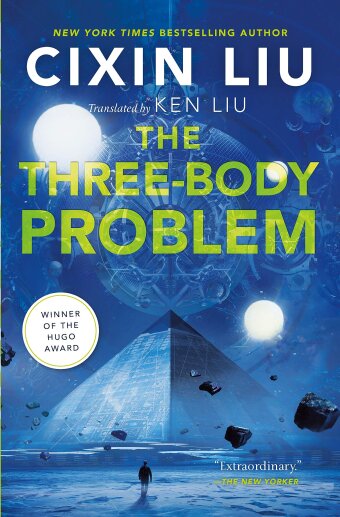Oh God, how do I review this?
This must be the book where I have annotated and highlighted more than anything I’ve ever read. There are so many great ideas on display here, some of which really opened my eyes to the grim truth about alien civilization, and, even more so, the grim truth about human nature. These ideas are put on display with elaborate explainations and lots of examples. All of them we’re easy enough to grasp, but still represent things that I hadn’t thought of before, despite their, sometimes simplistic, nature.
Unfortunately, the brilliant ideas are the only things that keep this book standing, because on all other fronts, there are some serious issues:
- The writing style is all over place, from spartan descriptions to beautiful lyrical masterpieces, usually in the space of a single paragraph. It has a very dry, minimalistic flow to it, where the prosaic bits stand out even more because of the contrast to the default, documentary style of writing. You could argue that this is a writing technique by its own right, but it just didn’t work for me. The whole story felt distant because of it.
- All the characters are utterly uninteresting; I really couldn’t care less about anyone. The dry writing and almost monotone narration really didn’t help. The only character that had any kind of intonation was the ex-cop, but he doesn’t get that much screen time this time around. Despite the huge arc Luo Ji lives through, at no point did I care what happened to him.
- Pacing seems to be all over the place as well, with the story unevenly distributed over the course of 200 years. There’s a disproportionaly large chunk of the story that focuses almost solely on Luo Ji and his love-life, about 30%, while the rest is comprised of bullet lists of events and large exposition pieces on philosophy.
As I’ve said in my review for the Three-Body Problem, I have the feeling that most of the alien feel that this story has, stems from the cultural differences, both in society and writing between the western and the eastern world. However, knowing that, doesn’t make the experience any better, although it does help to see it through. Despite it’s brilliant ideas, this book reads more like a documentary on philosophical thinking than an actual novel, and that really deteriorated the experience.
So, how to rate this? As a SciFi novel, it mostly explores ideologies, and it does so really, really well, with some cool views on future society and technology, so 5 stars for that. As a novel though, it falls flat on its arse and was just barely OK, 2 stars.
Which makes for an average of 3.5 stars, which I’ll round down, because my overall feeling is one of dissapointment, this could have been so much better.
